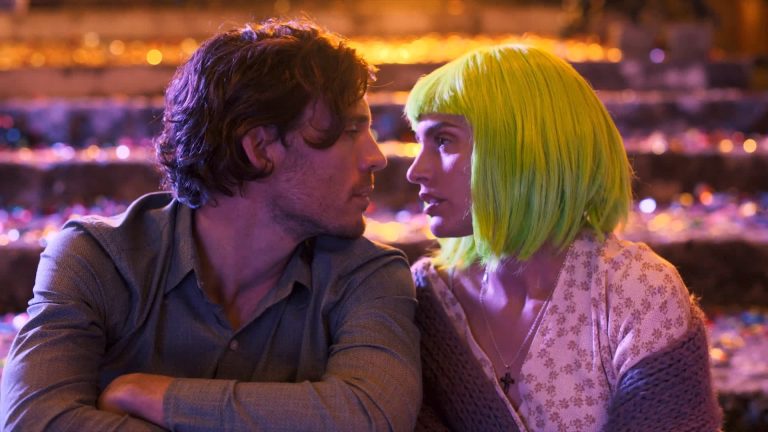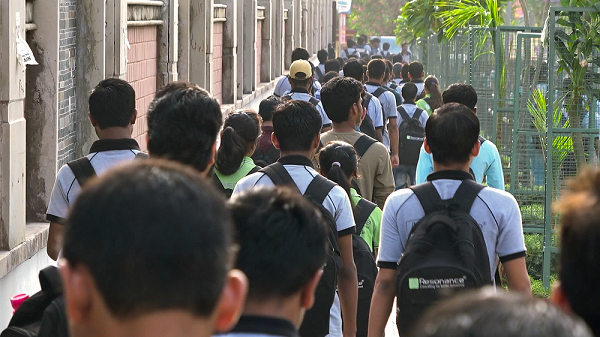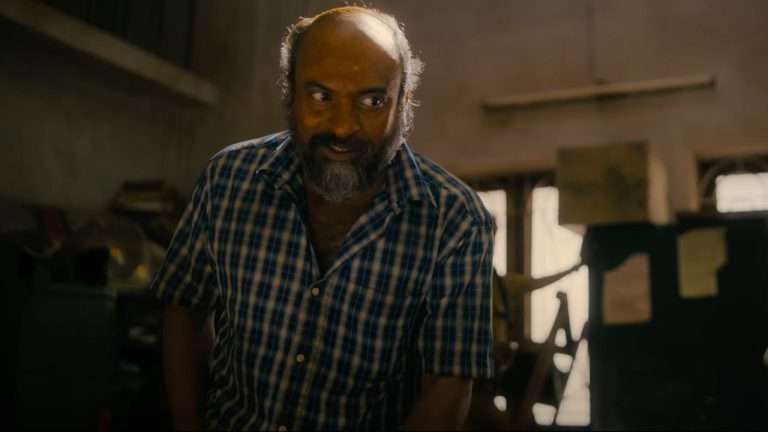Connor Jessup’s short film “Julian and The Wind” is full of gorgeous, enveloping feelings. Watching it is like being ambushed by a swell of tickling sensations. So much seems fleeting, featherlight yet vital. In Jessup’s hands, the smallest of gestures have in their embrace a hurtling vastness of finely tuned emotional notes. From the opening itself, you’re ushered gently into a mysterious, soft, and billowing world. It’s a windy night in Ontario. It observes Arthur (David Webster) stealing a long, considered look at his boarding school roommate, Julian (Joel Oulette). The camera approximates his gaze drifting over Julian’s bare chest, a tiny slump of hair in its center. He’s interrupted when Julian suddenly begins to sleepwalk, straying out into the school grounds. Arthur can’t help but follow.
The film’s movement proceeds from the interiors to the external and finally sweeps back in, reanimated with a lovely flush of freshly awakened feelings. Somewhere in between, the emotional needle-point threading the characters shifts with the most lush, magical delicacy. Jessup folds the triggering conceits-cyclonic winds and Julian’s sleepwalking into the spare tale in a manner of natural, instant, effortless flow.
It’s a surge of yearning blowing up in Arthur. John Ker’s camera keeps the viewer oriented to his lingering gaze. It’s one suffused with anticipation, a tremulous need to connect but shy of stepping forth. It’s a longing that waits for the other to reciprocate, keening for signs to move ahead. Julian is a bit of a popular jock, Arthur quieter. Undercurrents between them are however curling through the surface.
Queer yearning is forever butted at by the assumed inevitability of failure, its trajectory bending to disappointment. Its inherent fate seems to be unrequited, caught in a limbo between intuiting the other’s wish, a furtive, passionate hope for a fulfilled intimacy, and probable rejection. One just keeps swinging, sandwiched in a heady dance of possibilities. This yearning keeps you bottled in, compelling a sense of removal from the world. It’s intense, making everything else retreat, the primacy of desire fully taking over. Jessup orchestrates the hushed drama stemming from this with a touch of the unearthly. Something elevated, spectral, happens, which transmutes into a real transferal.
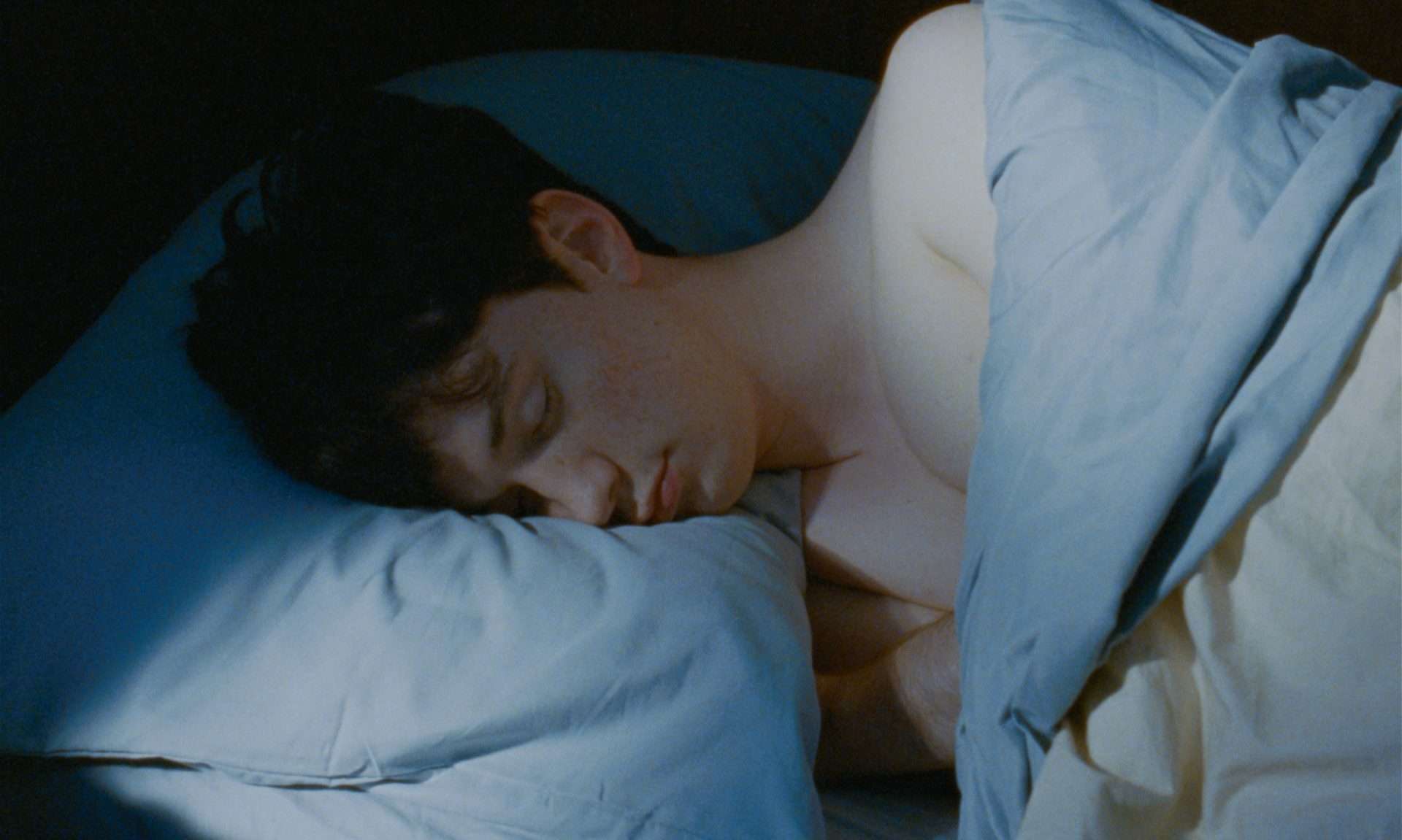
Jessup unlocks tucked-away, hidden worlds binding a person to the other. The language of yearning creates its own syntax, existing in its own silo while discreetly holding out hope for the desired to come in, extend the bridge. Oulette and Webster barely exchange a word but are exquisite together, striking a subtle tension. The ache, confusion, the thrusting urgency of want – every beat registers in their silent interactions. There’s no exaggerated, overwrought drama, but rather a graceful spirit of flux. Jessup cheekily sets up what appear to be tropes, by way of characters’ presentation, but he draws them through a journey with a surreal, enchanting axis.
In this lulling, dreamy atmosphere, he leads the viewer to a playful, amorphous space. It’s as if boundaries between romance and friendship melt away, proposing a rich, emotional place for its two characters to meet. It’s a space fertile with new possibilities that hitherto felt out of reach. Jessup choreographs a disarming reversal in the final scene. There’s a reaffirmation and a sense of intimacy being recognized and returned.
“Julian And The Wind” is a beguiling work, so gentle you feel like you sway through it. Jessup’s tender, loving gaze allows you to wander with his characters as well as inch toward happiness, and a sense of promise. It’s a film full of mystery and transformation. There’s so much warmth and comfort. I wanted to stay inside it forever.




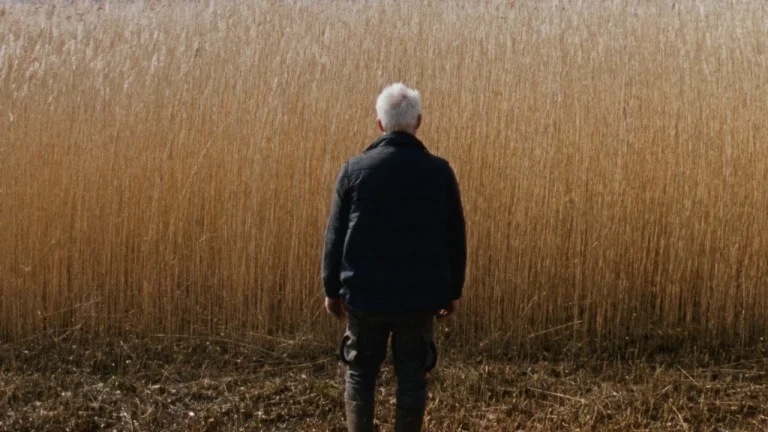
![Limbo [2020] Review – An Uneven yet Captivating Dramedy about Asylum-Seekers](https://79468c92.delivery.rocketcdn.me/wp-content/uploads/2021/07/Limbo-2020-768x561.jpg)
